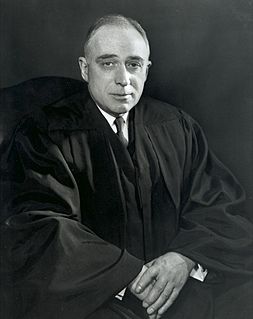Top 5 Quotes & Sayings by John Marshall Harlan II
Explore popular quotes and sayings by an American judge John Marshall Harlan II.
Last updated on December 22, 2024.
The constitutional right of free expression... is designed and intended to remove governmental restraints from the arena of public discussion, putting the decision as to what views shall be voiced in the hands of each of us, in the hope that the use of such freedom will ultimately produce a more capable citizenry and more perfect polity and in the belief that no other approach would comport with the premise of individual dignity and choice upon which our political systems rests.
The dissemination of the individual's opinions on matters of public interest is for us, in the historic words of the Declaration of Independence, an 'unalienable right' that 'governments are instituted among men to secure.' History shows us that the Founders were not always convinced that unlimited discussion of public issues would be 'for the benefit of all of us' but that they firmly adhered to the proposition that the 'true liberty of the press' permitted 'every man to publish his opinion'.


















